#is this coherent??? who knows
Text
working at a grocery store has only made me even angrier about inflation and how food, water, and shelter isnt free
like just looking at groceries (not water or shelter) i see just a few bags (maybe around 5 or so) of food costing over $125 USD regularly. I've seen orders upwards of $600. and sure those have been bigger orders but no food should cost that much.
my coworkers and i shouldn't be complaining about the price of food when we get employee discounts.
a single bag of food for myself (usually containing some small pizzas, crackers, milk, and cereal) regularly costs between $50-60. minimum wage in my state is 15/HR. thats about four hours of work for one bag of food
a coworker who works on the front end of our store prides herself on being able to catch theives. everyone says how good she is at it. and sometimes it makes sense, sometimes people are just stealing to steal. but how do you ever know?
when the card reader we take outside is broken we are supposed to have the customers come inside to pay for their groceries if they're paying with EBT. there's a woman who's a regular who has a few small children and when she comes to pick up groceries they're usually asleep in the car.
am i supposed to make her choose between leaving her children alone in the car or waking them up and taking them inside?
four hours of work for one bag of groceries. is this not also theft?
four hours of work. let that sink in. four hours for one small bag of groceries.
we aren't supposed to accept tips but if we don't accept tips then how else are we supposed to afford our groceries?
i haven't seen a single person stealing food. you cannot steal whats already stolen.
although im no longer a christian, the teachings of my childhood have stuck with me, and in the bible it says "When you reap the harvest of your land, do not reap to the very edges of your field or gather the gleanings of your harvest. Leave them for the poor and for the foreigner residing among you."
society has reaped right up the the very edge and beyond of its fields, so it's up to us to reap what we can
four hours of work for one bag of food
#kitty talks#idk what to tag this as#im just so fucking mad#no one can afford to eat anymore#all of our money is going towards constant genocides#food should be free#water should be free#shelter should be free#i dont even know if this post is coherent im just *angry*#no one should have to beg for basic necessities#there's a poem in this somewhere#theres a poem in the woman with the few months old baby who had to come in to take stuff off her order#because WIC didnt cover it all
1K notes
·
View notes
Text


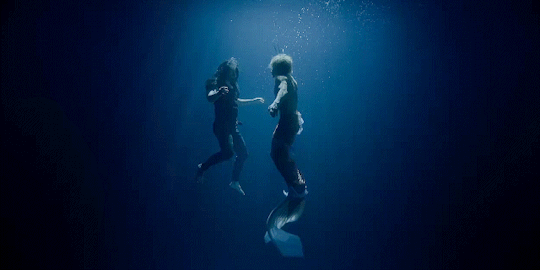

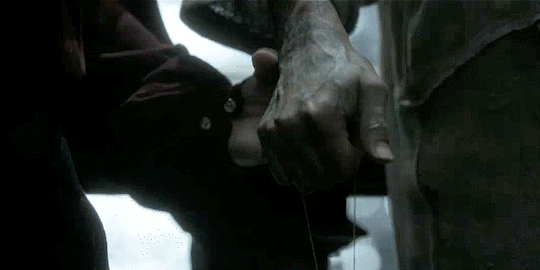


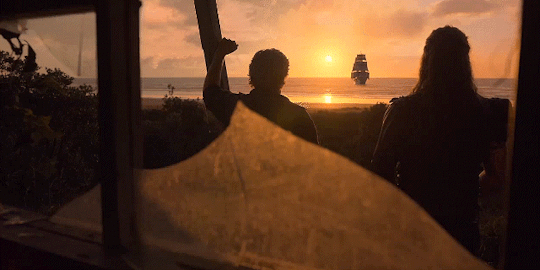
Our Flag Means Death | Season 2 (2023), David Jenkins
#our flag means death#ofmd season 2#ofmd#ofmd s2#ofmdedit#I just finished watching the finale and I have no coherent thoughts so just#AAAAAAAAAAAAH#maybe thoughts to follow#who knows#anyway perfect finale 10/10#tv shows i watched in 2023#i made this#i just want a tag for the things i personally put out into the world
576 notes
·
View notes
Photo


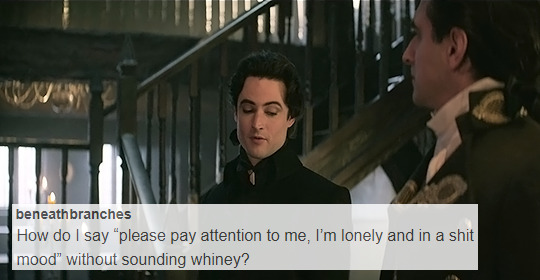


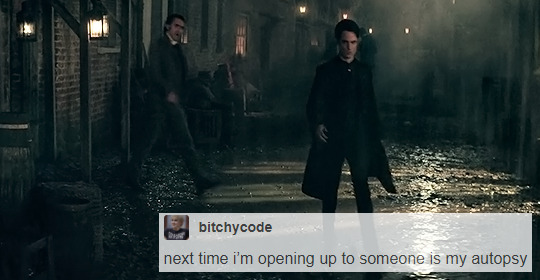
The Sandman + Incorrect Quotes
#having a single coherent theme was never an option haH#thesandmanedit#sandmanedit#sandmancentral#The Sandman#Dream of the Endless#Desire of the Endless#(yes yes again you'll never know who is who)#Matthew the Raven#Hob Gadling#Dreamling#The Sandman Incorrect Quotes#Lord Morpheus#Dream#Hob#Matthew#Desire#Dream x Hob#dcedit#netflixedit#buns.edits
4K notes
·
View notes
Text
the progression from "there's a morning snack and a midday snack" and "20 bucks for pizza" buck looking after his friend's kid to "bobby's famous lasagne: 6 types of cheese cooked to perfection" buck cooking for his family to "that's makes me your sous chef" teaching his kid how to cook is making me go so feral.
#going from two separate things - like how normal friends who aren't co-parenting would organised it - to the most domestic thing ever#to being the good responsible parent and making sure he eats real food before cookies#AND and the motifs that've been established: teaching to cook as father/son bonding and cooking food as a demonstration of love#im UNWELLLLL#buckley diaz family#911 abc#right from the pilot buck has had an intense care for children (but was also immature himself)#and we've seen him grow into a person who is literally becoming a father. (alongside his increasing ability to cook - which he is learning#from his own father figure)#children - specifically caring for children and being a father - has been tied to very important parts of buck's character development#thoughout the seasons#that man wants nothing more than to be a father AND HE IS ONE.#i dont even know if what im saying is coherent anymore but you get my drift#season 6 911#lynnsaysstuff
860 notes
·
View notes
Text
OKAY who wants to hear about why i think nimona challenges amatonormativity? you do! 🫵
one of the main ways this is accomplished is through ballister and ambrosius’s relationship. it’s arguable that it doesn’t necessarily fit the traditional model of romance - not only are they a queer interracial couple, and not only is their relationship ambiguous in the book, but there are certain instances, especially in the movie, that subvert traditional ideas of romance and friendship.
one instance that really stands out to me is when the director asks ambrosius what’s on his mind and he goes on his imagined rant about how arm-chopping isn’t a love language - you know the one. when he mentions ballister, he refers to him as “the man i love, my best friend.” and not just one or the other, but both! the man i love, and my best friend. he places equal emphasis on both the romantic and platonic aspects of the relationship, valuing ballister in both a romantic context and a platonic context without treating either one as more important than the other.
and even moments such as the first “i love you” and the kiss manage to subvert tradition. both of these things are generally seen as a pretty big deal, especially in fiction - if the characters are kissing or saying “i love you,” it’s usually a moment in which everything changes. a line is drawn, dividing the story into after and now. sometimes it’s dramatic and climactic, with fireworks and a swell of music, but even when it isn’t it’s still seen as a turning point of sorts. now it’s official, now it’s real. but this isn’t the case in nimona. both moments are certainly significant - they do a good job of showcasing the character development and where ballister and ambrosius are on their respective journeys, and are certainly important in terms of representation - but neither one follows the path that most fictional romance does.
another way in which nimona challenges amatonormativity would be the emphasis on friendship! in the tavern scene (in the movie) when ambrosius suggests killing nimona, ballister disagrees and says “she’s my friend.” ambrosius replies with “aren’t i more than that?”, implying he’s more important than a friend - thus upholding amatonormative ideas. ballister becomes angry at that and leaves - challenging this idea and prioritizing his platonic relationship with nimona over his romantic one with ambrosius, as nimona is the one he wants to defend.
additionally, a big part of this scene is the way ballister deliberately rejects institute values while ambrosius unintentionally upholds them. and because the story challenges homophobia and transphobia (and other forms of bigotry) through the lens of the institute, it would make sense for it to challenge amatonormativity too! it’s something that’s become incredibly normalized, to the point that lots of people don’t even know it exists, and this is reminiscent of the institute brainwashing, especially when it comes to ambrosius - he’s been manipulated his whole life and probably genuinely doesn’t understand the level to which he’s internalized institute beliefs.
ballister prioritizes nimona many times, actually. when he tells ambrosius she’s “smart, kind, and quite sophisticated,” when he’s overjoyed to see her again at the end, when he refuses to kill her and saves her instead. over and over, he proves how much he cares about her, even when this involves directly going against what ambrosius wants - which, of course, is really what the institute wants. a core tenant of amatonormativity is the false notion that romantic relationships are more important or valuable than other types of relationships, but ballister actively goes against this!
to conclude, as a story that at its core is about identity and challenging societal beliefs, nimona defies expectations and traditional ideas of what it should or shouldn’t be. it’s possible that amatonormativity wasn’t what the creators had in mind, but the story still manages to challenge it with grace and elegance. just like its main character, nimona refuses to conform to what others want it to be.
#nimona#nimona movie#ballister blackheart#ballister boldheart#ambrosius goldenloin#ballister x ambrosius#ambrosius x ballister#nimona netflix#nd stevenson#nimona spoilers#i could go on tbh but i think this is a digestible amount#often when i’m writing a meta i’ll walk around in circles talking into my phone recording my thoughts out loud#and then i’ll play it back and put the most coherent stuff into a list which eventually becomes paragraphs#and the combined recordings for this one are about half an hour in total lol#i’m just. absolutely in love with the whole story. both the book and the movie mean so incredibly much to me#changed my life shaped me as a person etc etc :’)#OH i almost forgot. this analysis is dedicated to the person who sent me aphobic anon hate about it before it even existed lol#i know i said i wouldn’t post anything if people couldn’t be normal but idc actually. seethe with rage! <3#my words#meta
940 notes
·
View notes
Text
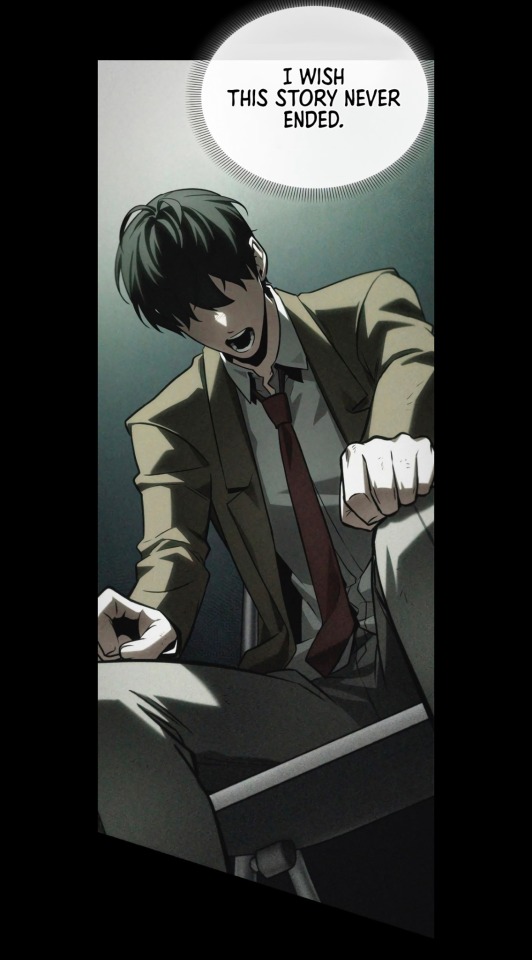
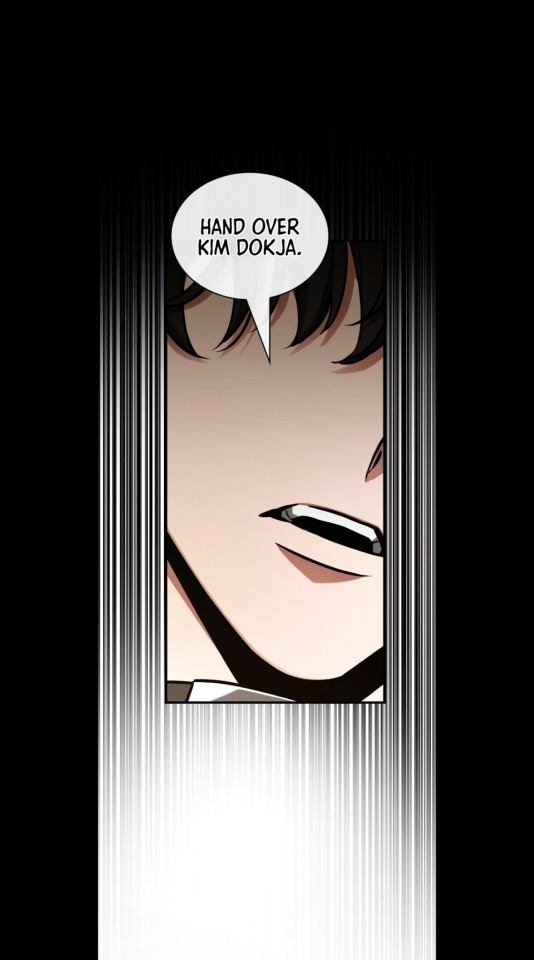
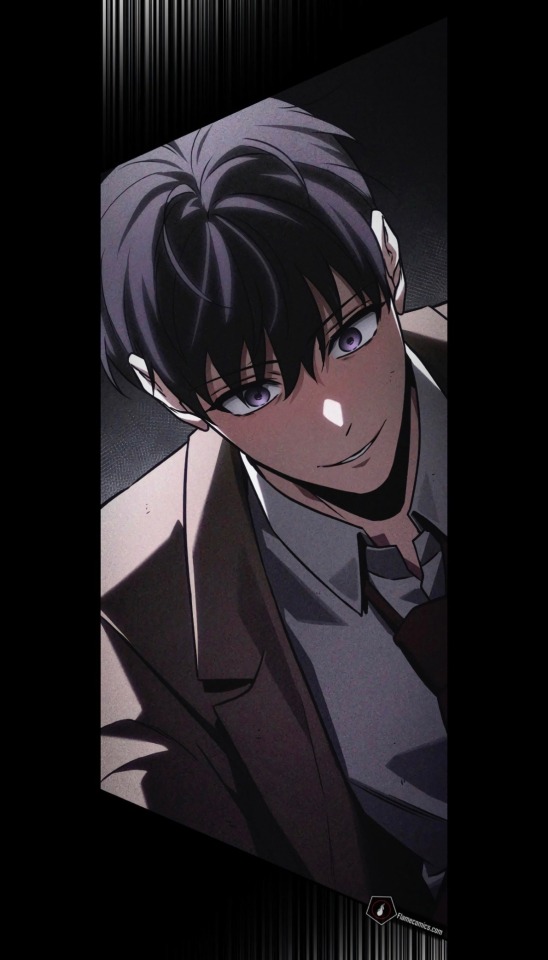


i may be going insane
#my ramblings#lsk realizing the brutal truth that the relationship she wants with her son may not be salvageable#that all the sacrifices she made out of unconditional love only served to worsen their relationship#that she’s not the person he loves most and probably never will be#she only wants him to be alive and safe (because that’s what being a mother means right? one day he’ll embrace the truth thank her. right?)#but the only person accompanied him in his childhood#who comforted him when she couldn’t even bear to talk to him#is right in front of her. not knowing that her son will do whatever he can to make sure he survives. not knowing that he’ll die for him.#this is the most coherent i can be about this rn#anyways. back to your regularly scheduled programming#orv#omniscient reader’s viewpoint#kim dokja#yoo joonghyuk#lee sookyung
235 notes
·
View notes
Text
It's actually so very important to me that Endo made it very clear that Yor also had her own ulterior motives for marrying Loid, and that it was clear between them that it's only a marriage of convenience.
Like, to each their own, but personally it would have not clicked for me if Loid had actually tried to make Yor fall in love with him (which he did intend to do) and she did, and for her the marriage was real, even if he fell absolutely head over heels for her later on.
Again it's the thing about how strangely honest they are with each other despite their lies and secrets, but it's also... comforting, in a way. Trusting. It gives you the feeling that Yor's side will be equally as important as Loid's, if not more, that she will be given respect and agency by the narrative.
(Anime only fan here, don't spoil me for the manga)
#sxf#Yor Forger#I'm kinda sleepy so thoughts are not very coherent#maybe a meta will be inspired this weekend#who knows not me
166 notes
·
View notes
Text
bruce: that’s it, i’ve had enough. get on top of the fridge
jason: clamoring onto the fridge: this house is a FUCKING NIGHTMARE
damian: todd! is alfred up there?
jason: alfred’s doing the laundry
damian: the cat, todd. i’m asking about the cat
jason: oh, no
tim: why the fuck did you think he meant alfred the human
duke: why are we referring to him as alfred the human
tim: to distinguish
#i’m sick#and this is funny to me#but is it funny to people who aren’t sick?#i don’t know#does this even make sense?#is it coherent?#jason todd#red hood#bruce wayne#batman#tim drake#red robin#damian#robin#alfred the cat#duke thomas#the signal#batfam#batfamily#batfam incorrect quotes#batfamily incorrect quotes
1K notes
·
View notes
Text
I was deep in my drunk feelings when I made a joke post threatening to write about episode 5 symbolism and mizu, but then enough people said "where is the essay" so I am here to ramble as requested
in ep 5, the tale told in the puppet show spliced with the flashback sequence of mizu’s marriage identifies mizu as not only the ronin, but also the bride and, with tragedy, the onryō. I would argue that mizu is also depicted (in a less linear fashion) as the phoenix itself, and will circle back to this thought later
mizu is first presented as the ronin, the warrior with a singular purpose. as the ronin’s lord is assassinated by the rival clan, mizu’s mother is killed in the house fire. the ronin swears his revenge, and dedicates his life to this cause. through his childhood and into his young adult life when he departs from swordfather, mizu is exclusively the ronin. he is not the onryō yet, demonstrated in his honorable unwillingness to harm the men who stab him and throw him out of the shop even after he insists that he wasn't looking for a fight in the first place
the ronin is only able to rest and put away his mission when he meets the bride, the lover. however, mizu’s bride is not literally another person she meets. the bride is not mama, or mikio, but the lover mizu discovers in herself, the one allowed to bloom in place of mizu-as-ronin. mizu’s growth into the bride from the ronin occurs over time, but solidifies in the moment when kai is gifted to her by mikio, paralleling the taming of her own distrust and expectations of being hurt. (side note, giving a nod to effective use of color: the bride puppet, dressed in reds and oranges, has matching coloring to the gifting scene, as it takes place in autumn)
mizu’s transformation into the onryō happens in two parts, beginning with the slaying of the bride and completing with the slaying of the ronin. the betrayal by mikio and mama kills the softness in mizu, kills the lover she has allowed herself to become. mizu-as-onryō retaliates by killing the ronin: the part of himself that hesitates before striking, that part that cares for honor. in not intervening in mama’s death and then murdering mikio in turn, mizu kills the ronin in himself, slaughtering it in retribution for the dead bride
mizu is both the bride and the ronin, peaceful lover and noble warrior, until he is not—he is the onryō, only the onryō. episode 5 opens with the narrator saying, “no one man can defeat an army, but one creature can.” only as the onryō, and not as the ronin or the bride, does mizu have the force of will and capacity for violence it takes to singlehandedly overcome boss hamata’s thousand claw army and protect the brothel
mizu’s identity and place in the world is a constant dialogue. he is too white to have a respectable place in japanese society, but is also seen by abijah (our stand-in for white british society) as filthy and corrupted. he is not perceived as enough of a man to walk through life wholly as one (madame kaji’s comments about his apparent lack of sexual desires, his bones breaking “like a woman’s” under fowler’s hands, his disregard for honor and recognition as a samurai). she is also not enough of a woman to exist peacefully as one with mikio (she is a swordsman, an accomplished rider, bad at domesticity; “what woman doesn’t want a husband?” mama chastises)
the moment when mikio rejects her completely following their spar is a particularly poignant narrative beat about tolerance of “the other” in gender presentation: mikio can accept her as a woman only until she bests him at manhood, at the sword, at violence. she is Other in that she is physically strong, a poor cook, able to wield a sword. these traits are all tolerable to mikio, also an outcast, so long as she is not so Other as to be a man. but her swordsmanship bests his, and bests his in the way the sun outshines a candle. it is too Other, and therefore she is not a woman. she is a monster to him, the onryō, even before she kills the bride and the ronin in herself
(( as an aside, this series does a very good job at discussing the oft-challenging relationship between race and gender (e.g. that it is difficult for mizu to live as a biracial man, but would be deadly for her to live as a biracial woman), and demonstrating how queerness of identity complicates that relationship even further—but that’s a topic for a different post ))
as the narrative has been building on this idea that mizu is both the ronin and the bride, the man and the woman, japanese and white, episode 5 concludes with the heartbreaking reveal that, although mizu is all of these things simultaneously, he has had these identities beaten out of him by tragedy and cruelty and his own self-loathing hand
but mizu does not stagnate as the monster. we return to the metaphor of steel: too pure and it becomes brittle, breaking under pressure. mizu is a sword, a weapon that he has forged for the sole purpose of revenge and blood, but he has excised too much of himself to successfully deliver on his goals—he is not the ronin or the bride, he is the onryō; she is not a woman or a man, she is the onryō; the onryō is nothing but pain and vengeance—and so it breaks
“perhaps a demon cannot make steel,” mizu says. “I am a bad artist”
swordfather replies, “an artist gives all they have to the art, the whole. your strengths and deficiencies, your loves and shames. perhaps the people you collected… if you do not invite the whole, the demon takes two chairs, and your art will suffer”
to be reforged, mizu must not only acknowledge the impurities she has beaten out of her blade, out of herself, but lovingly, radically accept them and reincorporate them into the blade, into herself. he adds impure steel—the people he has collected, with their own dualities—to the sheared meteorite sword: the broken blade that fit so perfectly in taigen’s hand (the archetypal ronin, but a man seeking happiness over glory), the knife akemi tried to murder mizu with (the archetypal bride, but with ambition for greatness), the bell given to ringo and returned to mizu in broken trust (the man unable to hold a sword, but upholding samurai principles of honor and wisdom), the tongs that honed mizu’s smithcraft under swordfather’s guidance (the artisan, a blind man who sees more than most). to make of herself a blade strong enough to see her promises through, she must hold her monstrosity and honor and compassion and artistry in equal import
she is the onryō, and the ronin, and the bride, and all the people she has collected.
with this we finally come to mizu as the phoenix. mizu undergoes many cycles of death and rebirth, both in the main storyline and the flashbacks into her life leading up to the present. often, mizu is juxtaposed against literal flames—the burning of his childhood home, swordfather’s forge, the fire as he battles the giant in the infiltrated castle, the heart sutra forge of her own making, the climactic second confrontation with fowler. not every death/rebirth mizu undergoes is thematic to flame, of course. the fight with the four fangs, spliced with the rebirth ceremony of the town, for example, or the deaths of her ronin-self and bride-self, giving rise to the onryō
he is the phoenix, unable to truly die: every fatal combat he pulls back from the brink, reborn over and over in the wake of failure and setback. in episode 1, mizu prays for the gods to “let [him] die.” not to help him to face death unafraid, not to die with honor or victory, but to die at all. mizu has experienced death a thousand times over, but not once has it stuck
(( as a parting aside: the ronin’s rage at the phoenix clan for killing his lord parallels mizu’s self hatred of his mixed heritage (which he believes to be the thing that killed his mother), and so the ronin’s quest for revenge against the phoenix clan is mirrored in mizu’s quest to kill the white part of himself as best he can, by killing the white men who could be his father ))
mizu, the ronin. mizu, the bride. mizu, the onryō. mizu, the phoenix.
#blue eye samurai#mizu blue eye samurai#hopefully this is mostly coherent#I have more things to say but this was getting lengthy#there's also a lot of gender and racial nuance I've glossed over here for an attempt at brevity and structure#god also the COLOR. do you know how much I have to say about the use of color and shadow as a reflection of the narrative#maybe I'll write another damn essay who knows#this show really scratches the part of my brain that was academically trained in film analysis#blue speaks
146 notes
·
View notes
Text
I am going insane thinking about Forever and Philza for real for real. When I first saw them interacting I thought that getting atatched to these two would bring so much angst to lil old me but like they're one of the most solid friendships nowadays and it's so heartwarming to see that developing!
It's about how Forever saw Tallulah being attacked and killed right in front of him and the pain everyone went through when Bobby lost his last life and decided that no parent would go through that again. That his son would never be in that danger again.
It's about how they came suddenly into the island and quickly became an essencial part of everyone's life. I didn't follow Philza before but I can only imagine, like, there is that monster that is trying to kill your kids at any cost, just like the very island they were in. You couldn't trust the Federation and maybe you couldn't trust the others islanders too. Everything you had is your own strength and your intelligence and the determination to do anything you could to protect your kid, but in the end, the very act of fighting for their life could be the thing that kills them if in the heat of the battle they kids just get too close from your weapon.
That was the problem. And what could they do if not do their best to fight and get stronger and survive one more day?
Forever saw that. For me that is so crazy. He saw a problem that seemed like it didn't have a solution, like it was something that simply could not be helped and he just went 'nope' and made an entire system that took him hours and hours to not only protect his son, but the children of the entire island.
I just wonder if it was a breath of hope in the middle of that despair. I mean, of course everyone did a lot for the eggs, I could spend literal hours here describing how pretty much everyone in the island, in little or big ways, went out of their day/routine/plan to take care and spend time with their eggs, to wipe their tears or to just laugh and be silly together. This is also hope and this is also important. And the N.I.N.H.O? Bruh, it was the confirmation that even if the person wasn't good at fighting. Even if you weren't online. Even if someone was kilometers away from the fight, with just a button your kid would be safe and sound and far away from any attack.
And Forever gave that freely to everyone. I think that was The Moment to Philza. That crazy silly funny smart brazilian guy that followed him talking nonsense about love and an ex just saw all of their (and his too) pain and said "We're not going to go through that alone ever again."
The amount of care aaaaa. And now Philza gave him acesso to his base. To the place where his kids are and one of the places that he protects that most. And he never took it from Forever. NEVER. That is so crazy to me. I mean, picture with me:
That man is a full anarchist and not for a single moment he decided that Forever becoming the president is a reason to take him from his allow list. Not ever when he accepted the task from Cucorucho and everyone thought that he and the Federation were getting close.
Not even when Tallulah and Richas had that fight or during the entire Haply Pills Arc. !!!! Do you realize that! From the very first second that Philza decided to trust him he just Didn't Stop. Ever. Forever was going crazy smiling laughing and threatening everyone, refusing to listen about the eggs and he just said that Everything Would Be Okay, We're Going To Get Through This.
His enemy is the Federation and that blonde, crazy guy with a heart of gold is his friend, he is not going to steer away from his side. They flirt and make jokes and have serious conversations and Philza goes to him when he gets any important information and Forever asked about him every day since he woke up to thank him for not letting him alone. They could have the rockiest relationship ever but each time they see each other is so calm and fun and full of reassures that They Will Find The Eggs, Don't Worry, You Did Everything You Could.
Just. Them.
#Philza#Forever#I just have a lot of thoughts and most of them aren't very coherent vaugwywgwjeveygejeveheveyefhw#it's just so crazy like cagcwtwdw REALLY thought that they would just stop interacting after the Marriage Arc but NO THEY'RE STILL THERE#like B R U H#one of the happiest surprises ever I am just ahwceywaaaaaaa lot of feelings lot of feelings#for both romantic or friendship pairings I just really like their interactions jfssdchvugnb#maybe it will change in the future but who knows#just thinking a whole lot#qsmp
209 notes
·
View notes
Text
Now don’t get me wrong, I absolutely think that from a moral standpoint Glenn made the better choice at the end of the trial- in fact I think one of the most tragic things about that scene (where we hear Glenn’s reasoning and all that) is that if you needed irrefutable proof that Glenn is both a good person and a good dad, there it was! But of course by that point it was already too late.
But… Sometimes I find myself thinking about… How to put this… If Nick had learned of his dad’s decision, do you think he might have… Taken it the wrong way? Do you think if Nick Close had learned that Glenn chose to give up being his dad, he would have understood this as the ultimate act of abandonment? Or that his dad didn’t see him as someone worth fighting for? Not that I think Nick would have wanted his dad to fight the dragon either per se, but… Well, maybe deep down some part of him would have, actually.
#I frankly don’t know if this one is coherent! But I really do think about this a lot actually. As much as it may seem unimportant.#Also Nick Close posting is gonna become my new favourite thing I think#dndads#dungeons and daddies#Nick close#glenn close#glenn close dndads#nicky freeman#🤔 will this resonate with anyone other than myself? Who can say!#I really did think that somehow Glenn’s decision at the end of the trial would have somehow been used as proof that his verdict was wrong#But alas the Burch man would not have it be so easy…#I really do need to get back to writing lawless (a fic of mine!) at some point 😤#Even if that story is about all the kids- and though you wouldn’t necessarily be able to tell by what’s currently out-#It is actually at the base of it all a story about Nick Close
500 notes
·
View notes
Text
Just like heaven (dp x dc)
So.
Maybe diving head first into a rapidly disappearing portal in pursuit of the Phantom Menacetm was something she could’ve thought about a little longer. Because, though it was generally a good thing Valerie didn’t know when to quit, it also tended to lend her in difficult situations. This time she had landed herself in a strange city with no idea of how to get back home.
Worse still, Phantom and his furry partner in crime were nowhere to be found which mean she couldn’t threaten them into answering her questions.
“Alright, Val,” she muttered. “You can do this.”
She looked around wearily, noticing the seedy atmosphere of the urban landscape she’d found herself in. Valerie turned towards the other end of the unfamiliar dirty alley and spotted a shadowed figure.
“Hello?” Valerie called out but the person didn’t move.
The teen hesitated a bit before approaching slowly. “Hi, sir?” She tried again.
There was still no answer, so Valerie walked up to the figure. She side-stepped to place herself in front of the figure to find herself facing what looked like a teenage girl wearing an oversized purple hoodie and sweatpants.
“Hey,” Valerie repeated, waving her hand in front of the girl’s face. “Are you ok?”
The girl’s eyes widened as she looked up into Valerie’s visor. “You can see me?”
Valerie frowned behind her helmet. “Uh, yeah?”
“You can see me,” the girl repeated, her blue eyes, wide.
“Uh,” Valerie let out. “Do you need help?” She couldn’t help but ask though she herself was in a pickle already, the girl was clearly in distress.
“No, it’s just-“ the girl’s voice hitched. “Nobody has been able to see me.”
Valerie raised a hand to pat the girl on the shoulder awkwardly, as she didn’t know what to say to that but as she did, her hand passed straight through the girl as if she wasn’t even there.
“What the-” Valerie almost cursed.
“Are you a medium?” The girl asked, uncaring of the fact someone had just put a hand through her shoulder. “Please I need your help.”
“My help,” the teen vigilante repeated blankly as she struggled to reconcile her previous encounters with ghosts and this very human-looking girl in front of her.
“I think-” the girl started haltingly before taking in a steadying breath. “I think I died.”
#So the girl is Stephanie who is currently in a coma after her run as Robin brutally ended#this is based on that movie Just Like Heaven#So long story short Steph isn’t dead but she thinks she is (she’s in a coma)#Valerie can see ghosts cause of amity park making its people liminal#Stephanie brown x Valerie Grey#Or can also just be platonic#Also Valerie is stuck in Gotham and she has to get home#I’m thinking the vigilantes don’t like her much#Steph acts as a shoulder angel whispering stuff in her ear#I don’t know how coherent this is but like basically it’s just the plot of Just like heaven but with added vigilantes#dc x dp#dp x dc#roxpoxwrote#roxpox#valerie gray#stephanie brown
162 notes
·
View notes
Text
*googles if the shakesperian language i write into rouxls' dialogue is grammatically correct for the express purpose of using it incorrectly because lord knows that man doesn't know Shitteth From Fucketh*
#deltarune#rouxls kaard#''can i use this word in this sentence like this?-- why am i asking. he wouldn't care. putting effort in is OOC''#he doesn't think when he speaks its literally whatever comes out of his mouth first#it's like when you're 12 and trying to sound intellectual but you dont actually KNOW anything except he's a whole dude#i'll put Yon where Yon don't fucking belong its what he would want#not art#.... people who actually do write him coherently i respect you anyway because that shits difficult
359 notes
·
View notes
Text
*slams hands on table* S2 Tristamp Knives needing to drink his silly little drinks he has in every other iteration again because Vash fucked him and his gate up so much.
#Trigun#Tristamp#Trigun Stampede#And on the OTHER HAND#Vash's gate is so accessible to him#He can no has hunger as a weapon to use against himself#Is this coherent r insane migraine thots? Who knows
60 notes
·
View notes
Text
watching buffy look giles in the eye and going "yes i'm gonna go see angel :) we're just friends though!" is giving me psychic damage. like. you can see it causes giles physical pain to say angel's name. you can see how VISIBLY MISERABLE he is the entire scene???? 1) how did i remember none of this, and 2) the way he is looking at buffy the whole time as she gives him this determined, hard version of her bubbly smiley teen-girl-y ness is making me wanna claw at the walls. there is this very deliberate difference in both of them and the roles they inhabit. she is stepping into pre-angelus buffy and trying to shield herself in it and pretend the status quo was not irrevocably shattered, and he has reached this visible point of realization that nothing (no one) matters more to her than angel, who she feels understands her in a way that no one else does. there's this visible disconnect between them that buffy is just not engaging with and giles is resigning himself to. somehow that is just always what's happening with them
#celia watches btvs#i am in a weird brain place in general today so who knows if any of these thoughts r coherent#i just. buffy and giles. yeah
100 notes
·
View notes
Text
i'll be honest here i'm just reading jjk because this is a hostage situation at this point but why does everything feel so low stakes after all the build-up and tension, first for the shibuya arc and then for the culling game and especially the 'true purpose of the culling game' and then it's just like. btw gojo's out again. oh yeah we put him in a trench 8000km below sea level but he's ok dw. gojo sees megumi who is practically his son being possessed by sukuna and is like "huh. rip". when did they even get the back of the cube? and all the drama with reuniting the whole cast and they're just chilling in a hotel or wherever. what is even going on
#sorry i'm actually just being a hater on main#'why are you still reading jjk then' like i said i'm being held hostage by akutami gege :/#LIKE. maybe the plot will appear more coherent if i read it all in one go instead of on a weekly basis#HOWEVER for a weekly manga where people WILL be reading it on a weekly basis. the plot is just confusing#and i know i'm not the only one who thinks so#and i DID binge read like 20+ chapters recently to remind myself of what's going on and it still didn't make any sense#the thing with the back of the cube i actually can't remember. was it that they always had it but just needed angel's powers to use it?#augh anyway. i'm really just reading this for gojo and megumi at this point
305 notes
·
View notes